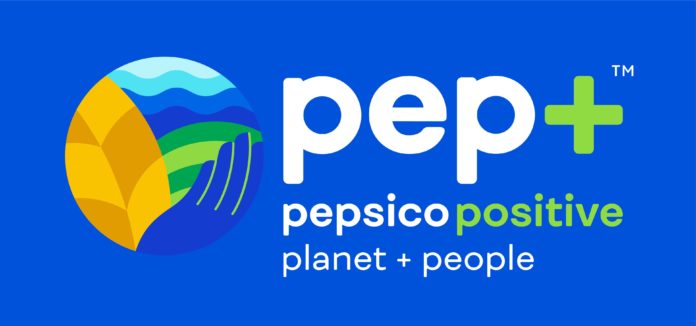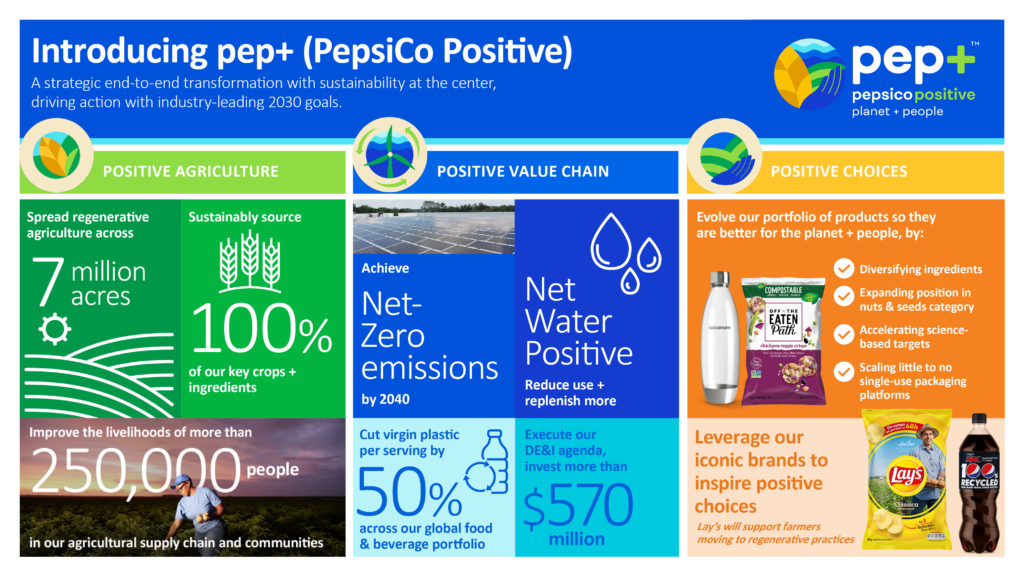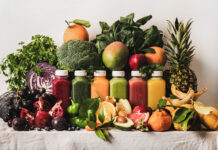
PepsiCo today announced a new sustainability program called PepsiCo Positive, or pep+, committing to “a strategic end-to-end transformation with sustainability at the center of how the company will create growth and value by operating within planetary boundaries and inspiring positive change for the planet and people.”
pep+ unites sustainability goals under three key themes:
- Positive agriculture
-
-
- Spreading regenerative practices across the company’s entire 7 million acre agricultural footprint
- Sustainably sourcing 100% of key crops and ingredients
- Improving the livelihoods of more than 250,000 people in the agricultural supply chain and communities
-
- Positive value chain
-
-
- Achieving net-zero emissions by 2040
- Becoming net water positive by 2030
- Cutting virgin plastic per serving by 50% across the entire food and beverage portfolio by 2030
- Investing more than $570 million in diversity, equity, and inclusion (DE&I)
-
- Positive choices
-
- Incorporating more diverse ingredients
- Expanding its position in the nuts and seeds category
- Accelerating the reduction of added sugars and sodium
- Scaling business models that use little to no single-use packaging
Here are a few examples of how Pepsi will meet these goals:
- Converting all Pepsi-branded products to 100% rPET bottles, which will cut greenhouse gas emissions by approximately 30% per bottle. In the United States, Pepsi Zero Sugar will be sold in rPET bottles starting next year, with all products converted by 2030.
- Introducing fully compostable packaging made with plant-based materials. Starting this month, Frito-Lay’s Off The Eaten Path products at Whole Foods will be packaged in compostable packaging.
“pep+ will change our brands and how they win in the market,” said Ramon Laguarta, PepsiCo’s Chairman and CEO. “For example, imagine Lay’s will start with a potato grown sustainably on a regenerative field, and then be cooked and delivered from a Net-Zero and Net Water Positive supply chain, sold in a bio-compostable bag, with the lowest sodium levels in the market. That’s a positive choice. That’s the best tasting, #1 potato chip of the future. That’s how pep+ will be better for people, for the planet, and for our business. Now, imagine the scale and impact when applied to all 23 of our billion-dollar brands.”










